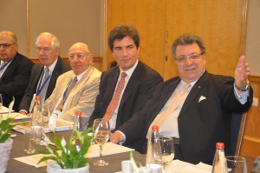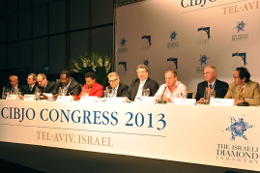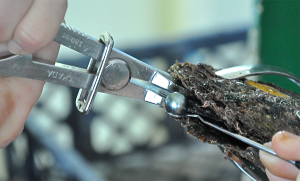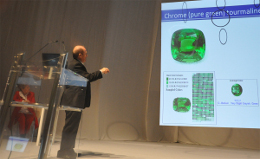U.S. Assistant Secretary of State meets with CIBJO Board of Directors
During their early morning meeting on the opening day of the 2013 CIBJO Congress in Tel Aviv, members of the CIBJO Board of Directors were visited by Jose W. Fernandez, the Assistant Secretary of State of the United States, who also is the American official overseeing chain of custody policy.
Mr. Fernandez explained his government’s position regarding the proactive role of the jewellery, precious metals, diamonds and gemstone industries in protecting the chain of custody, noting the United State’s continuing embargo on imports of rubies from Burma (Myanmar) and it support of a chain of custody initiative by the OECD.
CIBJO President Gaetano Cavalieri stressed the World Jewellery Confederation’s commitment to proper business practices, and urged that that U.S. Government include all representative groups active in the jewellery business, as it consults with industry bodies while formulating its position.
Photo Caption: CIBJO President Gaetano Cavalieri introducing Assistant Secretary of State Jose W. Fernandez to the CIBJO directors.






